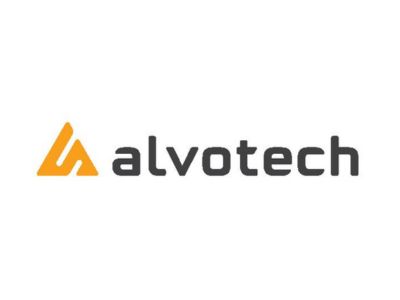At first glance, the patent system may seem like a peculiar exception within the context of a free-market economy. After all, patents confer monopolistic rights — something that is usually anathema in free-market ideology. Yet patents represent a rational tradeoff to ensure market-based economies encourage innovation while taking into consideration the need for competition. Innovators agree to disclose their secrets for public benefit in exchange for a limited monopoly. This allows the innovator to realize a better return on investments with intrinsic risk. The purpose of an appropriately balanced intellectual property (IP) system is to incentivize innovation and increase economic growth. However, abuses of IP law, which can lead to reduced investment in R&D, limited access to the innovation, and unreasonably higher prices can mute the benefits of the well-intentioned system. Such abuses currently are rampant in the pharma industry, despite claims about altruistic intentions of advancing healthcare.
While pharma can be a hotbed of innovation, some companies spend significant resources on manipulating the IP enforcement system to improperly extend expiring monopolies. They exploit unintended or unforeseen ambiguities in the law to crush competition rather than protect innovation. These companies use their limitless resources to improperly enforce IP to maximize profits from aging franchises rather than to invest in developing novel or improved transformative therapies. Such practices belie the original intention of patents by dissociating the incentive for innovation from the monopoly rent they impose.
In the United Kingdom and the European Economic Area (EEA), which includes the 27 countries of the European Union (EU) plus Iceland, Norway, and Liechtenstein, patent owners for medicines can be granted an extension of their patent rights for up to five and a half years to compensate for time lost during the regulatory review process, a so-called Supplementary Protection Certificate (SPC).
Because SPC holders are well protected, often generics and biosimilars companies seeking to launch an approved product on the first day after the SPC protection expires (a.k.a. “day one launch”) would initiate manufacturing in countries outside of the UK/EEA where SPC protection is not available. To level the playing field and bring production back into the UK/EAA, legislation has been introduced (the so-called “SPC waiver”). The SPC waiver permits a manufacturer to build a supply chain within the UK/EEA during the term of an SPC to be ready to launch a generic medicine or biosimilar on day one of the loss of exclusivity for a patented product covered by the SPC. The legislation also permits supply chain activity during the SPC term for export to countries outside of Europe.
Although the SPC waiver system has been in full effect for only a year, certain SPC holders have already attempted to abuse this new system in unintended ways that, if left unchecked, will deter companies from using the SPC waiver and therefore from bringing manufacturing business into the UK/EEA. Their weapons of choice are familiar, namely threats of litigation or actual lawsuits intended to delay and suppress competition, all of which is divorced from protecting valid IP rights.
A recent report from Medicines for Europe, based on a survey of member companies, provides some useful information about the recent use of the SPC waiver system. Fortunately, the use of SPC waivers seems to be gradually growing, with more than half of the surveyed companies indicating that they have submitted at least one SPC waiver notification in one or more EU Member States since the new legislation was enacted. Unfortunately, a number of companies are choosing to avoid manufacturing in the UK/EEA, in part because of the risk of frivolous/abusive litigation by the SPC holder that they fear or have already experienced.
The report outlines various exploitative tactics employed by holders of SPCs. These include the use of hypothetical patents in export markets, such as the US, as grounds to initiate litigation in the European manufacturing country. Additionally, they may misuse confidential data obtained through the SPC waiver system to mount a lawsuit in the export market. These actions are of course without merit, as patents in an export country outside of the UK/EEA are irrelevant in the context of a waiver relating to a SPC on a patent within the UK/EEA. Yet the mere threat of a lawsuit can be a sufficient deterrent based on a simple calculus: the benefit to a manufacturer of producing in the UK or EEA is smaller than the potential cost of litigation.
Action is needed to curb abusive tactics against companies looking to rely on an SPC waiver. At a minimum, action should be taken to disincentivize SPC holders from attempting to deter what is otherwise legitimate manufacturing activity under the SPC waiver system. This could be achieved, for example, through courts, anti-competition action by the European Commission (EC), and/or National Competition Authorities (NCAs).
While the courts, the EC, and NCAs can act rapidly, the first opportunity to introduce amendments to the legislation comes only in 2024 when the legislation comes up for review.
The SPC waiver is intended to increase competition and drive investment and job creation in the UK and EEA. Anticompetitive behavior by SPC holders directly hurts manufacturers and workers in the industry. Eventually, it also harms patients by delaying and limiting supply and raising prices. This behavior should not be taken lightly. It is the shared responsibility of all stakeholders (including innovators) to ensure that we have a well-functioning market system that serves the public interest.
Generics and biosimilar companies have a vital role in reducing healthcare costs by increasing access to affordable medicines. More affordable quality healthcare and improved well-being should be the ultimate goal of any policy regulating pharma.
You may also like…
Pravin Anand conferred with the APAA Enduring Impact Award
Pre-eminent IP Lawyer and Managing Partner of Anand and Anand, Mr Pravin Anand, has been conferred with the...
The quiet power of confidentiality clubs in SEP litigation
In standard essential patent (SEP) disputes, especially those involving FRAND (Fair, Reasonable, and...
A $10 million patent win reduced to a $1 lesson in damages
In a decision that will resonate as a stark warning to patent litigants, the US Court of Appeals for the Federal...
Contact us to write for out Newsletter















